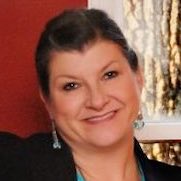14 minutes
How can a woman discover what success really means, even as she faces new and different obstacles?
Success doesn’t look the same to everyone. Consider the story arcs of fictional characters Don Draper and Peggy Olson of the television series “Mad Men”—the ’60s drama portraying the ad men (and women) of Madison Avenue. Early on, Olson’s talents are recognized by Draper and blossom under his mentorship. By season seven, the roles have reversed, and Olson becomes a declining Draper’s boss. Along the way, she sees the realities and fallacies of success and realizes it’s not always about power or money.
Personal and professional success means something different to each of us. Like Peggy of “Mad Men,” most of us navigate many paths to achieve it, experiencing highs and lows along the way and pondering what it is we really want. Amy Herbig, CEO of The BA Group, Northfield, Minnesota, and speaker at CUES School of Strategic Marketing™ (which will be held online this year via a blended learning format), has grappled with this same thought: How can we define success when it differs not only by the individual but by gender?
She explains that women carry a long history of struggles, unrealistic expectations and judgment cast by others while trying to find what it means to be “successful” within themselves and their careers. “Success includes attributes that define us overall—education, career, family and motherhood, appearance and physical activity, as well as behavior as an employee, wife, daughter, sister or friend. Unfortunately, the residue from years of fighting for professional equality can linger, with age-old topics of equal pay, sexual harassment in the workplace, and scrutiny for balancing motherhood and a career,” Herbig continues. “Our gender hasn’t always been gracious to one another either—women can be quick to judge other women—not to mention us being our own inner-critics.
“But I am excited that, as women, we’re attacking these unrealistic expectations, silencing both our internal and external critics and raising our voices in unison to support each other,” Herbig continues. “It’s also redefining what success means for a woman in her career, home life and within herself.”
Coming from corporate America, success for Herbig used to be about title and pay. “Never mind people being nice to one another or looking out for the consumer,” she adds. Her views on success are now dramatically different and come from a holistic place. “For me, it might be seeing someone on my team grow or feel challenged and having mentored and encouraged them to do so. When others succeed under your tutelage or entrust their business to you—that is success.”
Find Purpose
Clarity—and articulating your values—is critical to defining success, says CUES member Ericka Hewitt, VP/strategic planning & member/client experience for $1.8 billion Coastal Community Credit Union, Nanaimo, British Columbia. “Establishing clear personal values is foundational, but it takes time,” she notes. “I gained clarity through self-reflection, feedback from trusted colleagues and the wisdom of leadership experts.” (Two of her go-to gurus, Brené Brown and Richard Leider, speak extensively on the power of connecting with one’s personal values.)
“In 2018, I attended the Linkage Women in Leadership Institute, where over 900 women leaders from around the globe attended to connect and build our leadership capacities. Gaining clarity on personal values was a key component of our work. And with clarity, your values will serve as your guiding light.”
Her ability to contribute is a primary indicator of success, says Hewitt—“not only contributing to the success of the organization but also the development of those around me. Being a mentor, seeing a colleague succeed and knowing I contributed is foundational in how I define success in my career.”
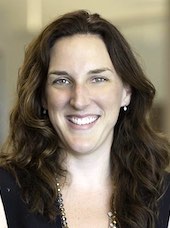
The Leading Women website writes that “Getting women to the top is important, and we’ve known for decades that having a mentor is one key to advancement. And recent research tells us that mentoring is a success factor for women’s initiatives. Mentoring is not just crucial for your or your protégé’s career success; it benefits women’s collective career success … Remember what Gail Evans has written in She Wins, You Win:
Every woman must always play on the women’s team. Why? Because every time any woman succeeds in business, your chances of succeeding in business increase. And every time a woman fails in business, your chances of failure increase.”
Grow From the Inside-Out
For Laurie Maddalena, MBA, CPCC, PHR, chief leadership consultant for Envision Excellence LLC, Laytonsville, Maryland, success means understanding your values and knowing what contributes to life in a meaningful way. “What will enhance your life and give purpose and fulfillment? What kind of legacy do you want to leave?”
Growth is also a necessity. “For me, success is defined by consistently learning and developing, both personally and professionally. It doesn’t necessarily mean advancing vertically but reaching my potential. While someone else might value stability without constant change, I knew I wouldn’t be happy in a routine position. It comes down to understanding your gifts and talents and blending those with your values.
“In my early 30s, I was a credit union executive,” reflects Maddalena. “Single at the time, the lifestyle suited me. I could stay until 10 p.m. for board meetings and work until 6:30 every night. But there came a time where I wanted to make a bigger contribution. I had been a VP for four years and felt I’d hit the peak; the job was comfortable but not as fulfilling as it had been. I ultimately decided to leave and start my own business. Was it a risk and challenge? Yes, but over time I built a successful business, one that allows me to do what I love, make a broader contribution and work a sustainable schedule.”
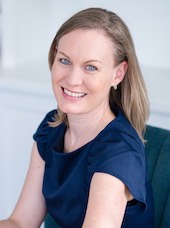
Understanding your skills and talents gives you clarity that makes career decisions easier, stresses Maddalena. “I have worked with leaders in high-level roles who don’t enjoy what they do. They’re caught up in working their way up the corporate ladder without pausing to contemplate what’s important.”
Take a Step Back
“Perhaps you’re not learning as much in your position anymore or don’t feel challenged,” says Maddalena. “Is there a way you can bring energy to your job by mentoring and developing others? Or leading a project outside your current responsibilities? Sometimes there are creative ways to position yourself differently to bring more fulfillment. If you don’t feel fulfilled, reflect on what’s most important to you now. What attributes of another job would be most fulfilling? It may take some time, effort and reflection to discover the path forward.”
Motivational speakers commonly say, “Find your passion.” Yet Maddalena notes that many of us struggle to understand what our passion really is. “As our sense of purpose evolves, it can be a series of small actions (such as taking a class or simply asking for what you want) that can lead you to a position that better aligns with your talents and values.”
Guide to Effective Mentorship
Embrace Your Gifts
For Deedee Myers, Ph.D., CEO of CUESolutions provider DDJ Myers Ltd., Phoenix, success centers on feeling “at home in her skin” with work and the people involved. It’s embracing and sharing her values, gifts and talents. If success were an equation, hers would be:
She notes that an internal assessment, done with honesty and candor, will shape your own formula. Start by asking yourself:
- What are your talents? Are they strategic thinking, developing others, seeing possibilities that others might not, being analytical or making sense of chaos?
- What are your gifts? Gifts are innate; we come into the world with gifts that never leave us, and these are shaped into talents. For example, a young girl may have the gift of conversation, inherited genetically. She takes that gift and creates agency by leading a group or facilitating meetings.
- What are your core beliefs? Beliefs are ingrained, often inherited from your parent(s), and are later created from experiences. Beliefs and values are driving forces that motivate us to be the best version of ourselves and support others to be the best version of themselves.
- What conversations and actions make you feel whole? Ask, “What is possible? Where are the openings? What is a competitive advantage no one can take away? What are the pillars that create the foundation of success for each of us?” These are professionally stimulating conversations that produce action for the greater good. They also showcase your talents. However, this type of “straight talk” requires courage, especially when it relates to your team and making and fulfilling promises.
- What is your ideal environment? It might be a branch, call center, team meeting, a community event or volunteering on a board.
- Lastly, what change do you effect (or want to effect)? What value do you add to the people in your environment? Are you receiving more than giving? Where you are in life; what is the right balance of giving and receiving?
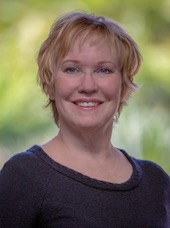
Myers’ company wasn’t born from instantaneous inspiration; it was born by gaining clarity into what she enjoyed, using mastery exercises to hone her skills and talents. “I took a blank piece of paper and drew a line down the middle,” she reflects. “On the left side, I wrote ‘MOST ENJOY.’ On the right side, ‘MASTERFUL.’ This reflective practice took a few days and could not be rushed. I also asked friends and associates what they thought I was great at (masterful) in my life and work. When I awoke, I asked myself, ‘What am I looking forward to today?’ At the end of the day, ‘Was this a day well-lived?’
“Learning these ‘flow points’ was critical—the days where time passed so fast, yet I had energy remaining. I found my family would benefit from these days when work did not consume all my attention and energy. These flow points—the intersection of what you enjoy with your skills and expertise—evolve. … Ultimately, my company began at the intersection of what I most enjoyed and my mastery—enough for clients to hire me.”
Author’s Note: If you’re unsure where your mastery lies, try using Gallup’s StrengthsFinder assessment tool to understand your talents and strengths.
Boost Your Success
Once you have defined what success means to you and identified your gifts, it’s important to actively look for development opportunities and areas of improvement that will fuel your trajectory toward your goals.
Seek emerging needs. Like the protagonists in “Mad Men” learned, it’s not always moving up that gets you to the top faster. It’s seizing opportunities, having confidence in yourself and allying with those who believe in you. Hewitt says that it’s essential to watch for emerging needs that could propel your organization forward. Some examples in her career include:
- seeking opportunities to introduce service channels that reflect consumer behaviors and trends, while aligning with the organization’s business strategy;
- finding ways to deepen employee involvement and feedback into the business planning process; and
- delivering resources to support employees’ ability to build the key competencies needed for organizational success (i.e., innovation capabilities).
Don’t wait to be asked—just do it! “Women tell me they want to do something in their position but have excuses ranging from ‘it’s not the popular choice’ to being held back by their personal glass ceilings,” says Herbig. “If I ask what’s standing in the way of their voice, I usually get silence or shrugs. Instead, show initiative by asking for opportunities: Take on a task or project on your own or volunteer for something in your area of interest, even if it’s not in your job description. Actions get noticed by those in control of titles and salaries—if not, sit down and present your case.”
Welcome failure. Silencing your inner critic is key to finding your conviction and voice. “I learned that no one was going to pave the way,” reflects Herbig. “I had to define what I wanted my future to look like, work extremely hard, sacrifice and lose some (mostly negative) relationships along the way. I have failed, I have been caught with my foot in my mouth, and I have been wrong. And while these moments range from the funny to gut-wrenching, I wouldn’t change any of them.”
Hewitt agrees. “I’ve been shaped by my stumbles as much—if not more—as the big wins,” she adds. “Try to view failure as a gift. What have those experiences taught you? How have they shaped you as a person, contributor, and leader? What you learn from failure is critical to future success.”
Find the right people. The “right people” aren’t necessarily the ones with the power. “Strengthen your board of advocates—individuals in various roles across the organization, key influencers you feel comfortable sharing ideas with and requesting feedback from,” stresses Hewitt. “Explain how your contributions to emerging business opportunities will move the organization forward. Once you have collected feedback, put yourself in that vulnerable place of asking for your advocates’ support in creating a role or taking on additional responsibilities—and it may take the form of a lateral move. But when you can recognize and advance strategic business needs, you position yourself for long-term success.”
And don’t discount anyone. “Every person you meet can teach a valuable leadership lesson,” Hewitt continues. “Absorb as much as you can from those around you, broaden your perspective and inform your thinking.
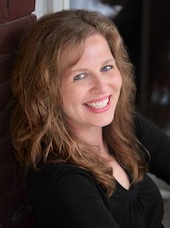
Avoid superfluous apologies. “As women, we have a bad habit of saying ‘I’m sorry’ for many reasons,” says Herbig. “Unless you have something to be truly sorry for, don’t make apologizing a regular part of your conversations. If you’re going against the norm and feel passionate, don’t feel you have to apologize. If conflict arises, don’t use an apology as a lead-in for discussion. Setting this tone discredits and says to others they shouldn’t have belief in you. Don’t be sorry for having ideas, an opinion or making statements based on your knowledge, experience and expertise. You were hired for a reason—now show everyone they made the right choice in you.”
Some experts call the habit of over-apologizing the “Sorry Syndrome,” and it can be indicative of stress and anxiety. Katherine Hurst writes extensively about it on her website and the reasons for it.
Don’t get hung up on things you can’t control. Women can be control freaks. Maybe it’s a result of “maternal gatekeeping,” the act of preventing men from becoming full and equal domestic partners, perhaps learned subconsciously from familial relationships or other social conditioning. Or perhaps it’s strictly a personality type.
“However, for success in all areas of your life, it’s essential to learn early on what’s worth getting worked up about and what’s not—what you can control and what you can’t,” Herbig advises. “The one thing none of us can control is other people and their actions. We can only take deep breaths and determine what we can do ourselves. I see young professional women overly bothered when things don’t go exactly to plan. Spoiler alert: That’s life, and the sooner you release this stress (which inhibits success), the happier and more fulfilled you’ll be.”
Do take initiative for the things you can control or influence. Herbig notes that a strong person bound for success will allow themselves to be mentored and coached. “But trust yourself and that all-important internal voice. If there’s an opportunity you want, ask for it. If denied, keep asking, or if possible, just take it! Encourage yourself to be confident and use your voice to share thoughts, ideas and recommendations.”
Take the Long View
“Determine what success means to you—and it’s not a title,” reminds Myers. “Rather, it’s meeting the needs of those around you and your environment. Courage is paramount, so is stepping forward, knowing that you have a choice in everything you do and who (and what organizations) you want to share your talents with.”
Also, understand what success means to you, and only you. “Women often focus on what other people view as success without contemplating what success means to them,” Maddalena concludes. “Success isn’t just about one’s professional life—it’s about one’s whole life. Being a successful executive at the expense of other parts of your life is not success. Work toward your potential daily, consistently make a positive impact in the world, and remember to enjoy life along the way.” cues icon
Stephanie Schwenn Sebring established and managed the marketing departments for three CUs and served in mentorship roles before launching her business. As owner of Fab Prose & Professional Writing, she assists credit unions, industry suppliers and any company wanting great content and a clear brand voice. Follow her on Twitter @fabprose.





